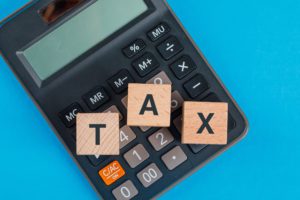
Loans can be a financial lifeline, but many people wonder if they come with tax benefits. The answer depends on the type of loan and how the funds are used. In this article, we’ll explore when loans and their interest payments may qualify for tax deductions, and how to maximize your financial strategies with Wise Loan.
Understanding Tax Deductions for Loans

Loans themselves are not tax-deductible, but in certain cases, the interest you pay on them can be. Whether or not you qualify depends on the type of loan and its purpose.
1. Mortgage Loans
Mortgage interest is one of the most common tax-deductible expenses. Homeowners can deduct interest on loans used to purchase, build, or improve a primary or secondary residence, up to certain limits.
2. Student Loans
Interest paid on federal and private student loans may be tax-deductible. Eligibility depends on your income level and filing status, with a maximum deduction of $2,500 per year.
3. Business Loans
If you use a loan for business purposes, the interest may be tax-deductible as a business expense. This applies to loans used for operating costs, equipment purchases, or expansion.
4. Personal Loans
In most cases, personal loan interest is not tax-deductible. However, there are exceptions if the loan is used for business expenses or qualified investments.
When Loans Are Not Tax-Deductible

It’s important to note that not all loans or interest payments qualify for deductions. Here are a few scenarios where loans are generally not tax-deductible:
- Credit card interest (except for business-related expenses).
- Auto loan interest for personal vehicles.
- Loans used for non-qualified personal expenses, such as vacations or entertainment.
How to Maximize Tax Benefits from Loans

If you want to make the most of tax deductions related to loans, follow these tips:
1. Keep Detailed Records
Maintain documentation that shows how loan funds were used. This is especially important for business and student loans.
2. Consult a Tax Professional
Tax laws can be complex and vary by jurisdiction. A tax professional can help you identify eligible deductions and ensure compliance with IRS regulations.
3. Use Loans Strategically
Borrow only for purposes that align with your financial goals. For example, consider how loans for education or home improvement can provide long-term value and potential tax benefits.
4. Track Changes in Tax Laws
Stay informed about changes to tax legislation that may impact loan-related deductions.
How Wise Loan Supports Your Financial Goals

While personal loans from Wise Loan are not tax-deductible, we offer flexible solutions to help you manage your financial needs:
- Fast Approval and Funding: Get access to funds y when you need them most.
- Customizable Repayment Plans: Choose terms that fit your budget.
- Transparent Terms: No hidden fees or surprises.
- Credit-Building Opportunities: Positive payment history with Wise Loan can help improve your credit score.
Final Thoughts: Are Loans Right for You?
Loans can be a valuable financial tool, whether or not they offer tax benefits. By understanding which loans qualify for deductions and using them responsibly, you can make informed decisions that align with your goals.
Ready to Take Control of Your Finances? Apply Today with Wise Loan
If you’re considering a loan, Wise Loan is here to help. Apply now to access flexible loan options that support your financial needs and goals. Let us be your partner in building a brighter financial future.
The recommendations contained in this article are designed for informational purposes only. Essential Lending DBA Wise Loan does not guarantee the accuracy of the information provided in this article; is not responsible for any errors, omissions, or misrepresentations; and is not responsible for the consequences of any decisions or actions taken as a result of the information provided above.











